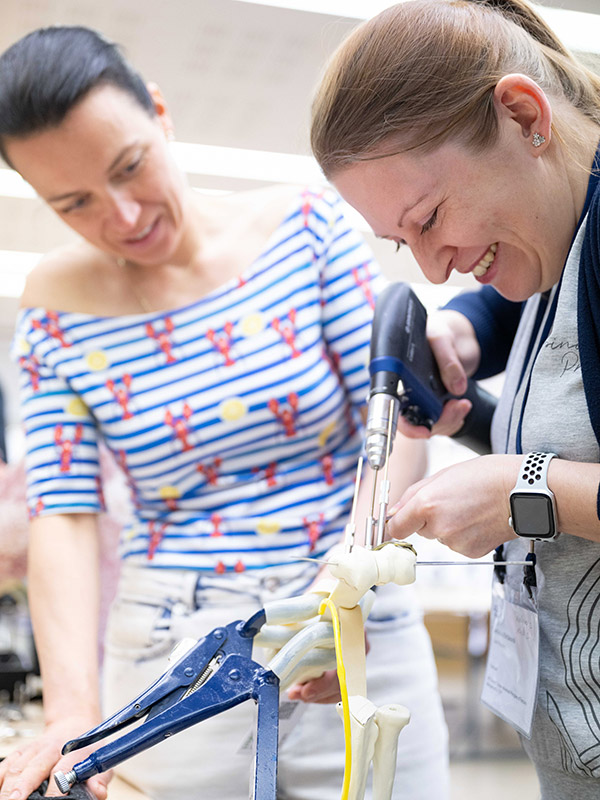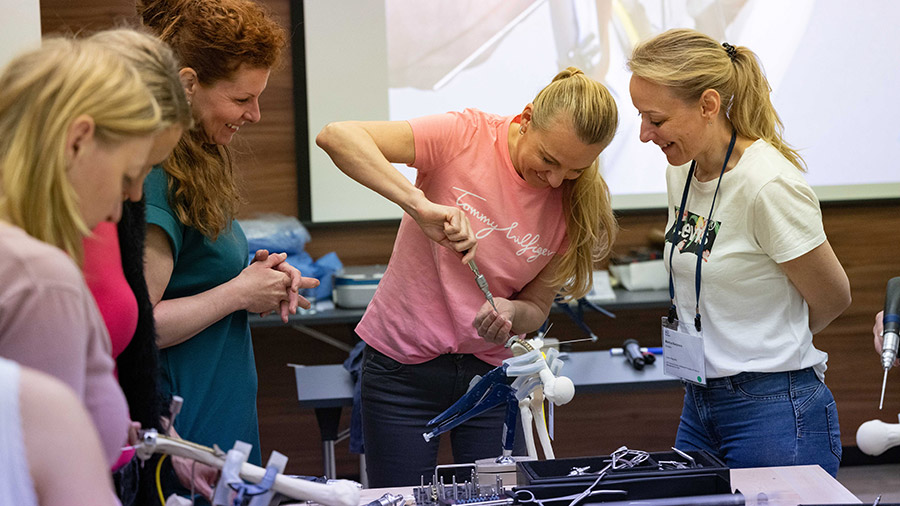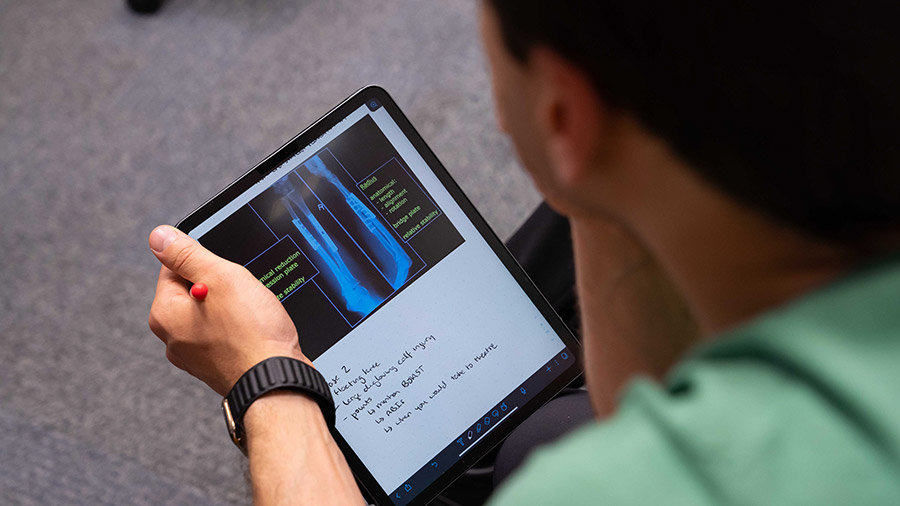AO Trauma Course—Advanced Principles of Fracture Management
The AO Trauma advanced principles course builds upon the AO principles and techniques learned in the AO Trauma basic principles course and focuses on more complex injuries.
Building on the AO Trauma Basic Principles course, this course concentrates on the principles and techniques of operative fracture management in more complex injuries and takes surgeons at the threshold of becoming independent to the next level.
Why you should choose this course
Top national and regional faculty
2-4 days in duration
Doctors in surgical training or interested in furthering their knowledge and skills
The first and important step to enhance your career
CME credits*
(*depending on region, not all courses are CME credited)
Course content
-
Course modules
- Module 1: Review of the principles and new techniques
- Module 2: Injuries of the upper limb
- Module 3: Injuries of the lower limb
- Module 4: Polytrauma, pelvis, and acetabulum
- Module 5: Special situations and problems
-
Practical exercises
- Fixation of a proximal humeral fracture
- Fixation of a distal femoral fracture
- Bicondylar tibial plateau fractures
- Management of distal tibial fractures
- Reduction techniques *
- Fractures of the distal humerus *
- Fixation of an intraarticular distal radial fracture *
- Intramedullary (IM) nailing of the femur *
- Ring Fixator Montage Principles for Fracture and Deformity Treatment *
- Multifragmentary fractures of the calcaneus *
- Patient positioning workshop *
* Optional content: Only in selected courses. Check your chosen date and location for the full program.
-
Small group discussions
- Reduction techniques—concepts and application
- Upper extremity fractures—decision making and methods of stabilization
- Fractures of the femur
- Fractures of the tibia, ankle, and foot
- Decision making in difficult fractures and polytrauma*
Only in selected courses. Check your chosen date and location for the full program.
Course details may be subject to change. Please check your chosen date and location for the detailed program.
Target audience
- Surgeons at the threshold of becoming independent
- Participants who have completed the Basic Principles course
Competencies
- Understand the concepts of stability, their influence on bone healing, and how to apply implants to achieve the appropriate stability
- Plan a treatment based on assessment, imaging, classification, and decision making
- Apply reduction techniques in fracture management with attention to the soft tissue
- Apply implants according to their properties utilizing different application techniques
- Assess and treat diaphyseal fractures
- Assess and treat articular and periarticular fractures
- Demonstrate strategies for assessing and treating open fractures and soft-tissue injuries
- Manage the polytrauma patient
- Evaluate, classify, and formulate a treatment plan for pelvic injuries and acetabular fractures
- Recognize risk factors and complications and manage accordingly
- Recognize and treat bone union disorders
- Recognize and manage special fracture circumstances
What does competency-based curriculum development mean?
Resources
AO Surgery Reference
Explore the award-winning online repository for surgical knowledge, describing the complete management process from diagnosis to aftercare for fractures in a given anatomical region.
Residents education taskforce
The Residents education taskforce is a group of experts who build and continuously improve our educational program. It consists of three

Jason A Lowe (USA)
Term: 2025–2027

Sue Deakin (UK)
Term: 2023–2026

Luiz Henrique Penteado Da Silva (Brazil)
Term: 2026–2028
See a full list of all regional program contributors and past international program editors.
Not the right course?
Find our list of all curricula courses here.





